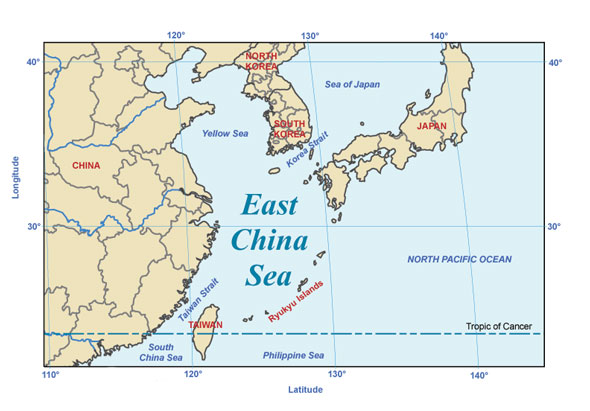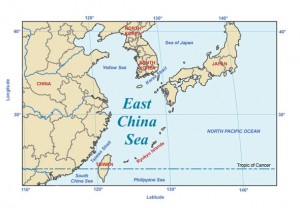
Are China and Japan Just Saber-Rattling over the Senkaku/Diaoyu Islands?
 Didi Kirsten Tatlow’s blog post in the Herald Tribune’s Rendezvous blog captures the mounting nationalistic zeal and anti-Japanese tension in China. We shouldn’t be too shocked by this, though. Anti-Japanese rhetoric and actions are nothing new in China, the only difference this time is the scale. The protests erupted because Japan purchased the Senkaku/Diaoyu Islands from private Japanese owners which China has claimed sovereignty over.
Didi Kirsten Tatlow’s blog post in the Herald Tribune’s Rendezvous blog captures the mounting nationalistic zeal and anti-Japanese tension in China. We shouldn’t be too shocked by this, though. Anti-Japanese rhetoric and actions are nothing new in China, the only difference this time is the scale. The protests erupted because Japan purchased the Senkaku/Diaoyu Islands from private Japanese owners which China has claimed sovereignty over.
Anti-Japanese sentiment can be partially attributed to the Chinese education system and media, which has for decades painted an ugly portrait of the Japanese people.
Since the Chinese government does not usually permit protests, it would seem that at least some parts of the government believed they had something to gain from the unrest. Perhaps they believe that this is a way for China to project power, hoping the demonstrations might pressure the Japanese into backing off their claims on the Senkaku/Diaoyu Islands.
However, I believe it is unlikely that protests will actually soften the Japanese position. If either or both countries cannot contain rising nationalist anger, a peaceful resolution will prove to be elusive – and both sides stand to lose out from a protracted conflict.
Already, domestic pressure in both countries is pushing leaders to take increasingly aggressive stances. Looking forward, the leadership transitions about to unfold in China and Japan might bring about a change in positions, but that is just speculation. Hopefully, a resolution of the change in political leadership will result in a gradual de-escalation.
As the 18th National Congress of the Chinese Communist Party, on November 8th, and the Japanese election, still to be announced, approach we may see more saber-rattling. The Chinese Communist Party needs to show that it can advance Chinese interests, while prospective Japanese leaders need to assure its citizens that it will stand up to Chinese bullying. Therefore, rising tension might just be for temporary political goals, rather than reflecting a deeper descent into conflict. However, such political posturing risks miscalculation, and a thaw in relations is not guaranteed.






[…] Are China and Japan Just Saber-Rattling over the Senkaku/Diaoyu Islands? […]